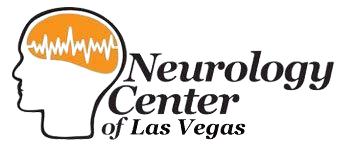MOVEMENT DISORDERS Q&A
MOVEMENT DISORDERS
Movement disorders like Parkinson's disease affect your muscle control due to problems with your nervous system. Neurologist Shanker Dixit, MD, Neurology Center of Las Vegas in Las Vegas, Nevada, can help when you have uncontrolled twitches, spasms, or tremors. Dr. Dixit has considerable experience assisting patients in managing a variety of movement disorders and Parkinson's disease to reduce symptoms and improve their quality of life. Call Neurology Center of Las Vegas to schedule a consultation or book online today.
WHAT IS PARKINSON'S DISEASE?
Movement disorders are neurological (nervous system) conditions that cause abnormally increased or reduced motions that may be voluntary or involuntary.
Types of movement disorders include:
- Ataxia
- Chorea
- Dystonia
- Huntington's disease
- Multiple system atrophy
- Myoclonus
- Parkinsonism
- Progressive supranuclear palsy
- Restless legs syndrome
- Tardive dyskinesia
- Tourette syndrome
- Essential tremor
- Wilson's disease
One of the most common types of movement disorders is Parkinson's disease.
Parkinson's disease causes various uncontrollable body movements. It affects brain cells that produce dopamine, a neurotransmitter (chemical messenger) that you need to move smoothly and with purpose.
The four chief symptoms of Parkinson's disease are:
Tremors
Parkinson's tremors or shakes often involve a back and forth rhythm.
Motion rigidity
Motion rigidity results in stiff, tense, contracted muscles and movement resistance.
Bradykinesia
Bradykinesia is the slowing down of movement that affects your ability to carry out routine motions and simple tasks.
Postural instability
Postural instability leads to poor balance and increases the risk of falls.
Other symptoms of Parkinson's include difficulty chewing, swallowing, and speaking, emotional changes, dementia or cognitive problems, fatigue and difficulty sleeping, and bowel and bladder issues.
Parkinson's typically affects people in later life but can develop in younger adults as well.
WHAT TREATMENTS HELP WITH MOVEMENT DISORDERS & PARKINSON'S DISEASE?
The treatment you need for your movement disorder depends on the nature of your condition. Dr. Dixit prepares an appropriate care plan for you based on your individual needs. Potential therapies include:
Medications
The standard medication for Parkinson's disease is levodopa combined with carbidopa. Levodopa helps your nerve cells make more dopamine, and carbidopa works to stop changes from taking place before the levodopa gets to your brain. Alternative medications include:
- Dopamine agonists (pramipexole, ropinirole, and apomorphine)
- Anticholinergic medications
- COMT (catechol-O-methyltransferase) inhibitors
- MAO-B (monoamine oxidase B) inhibitors
You can take advantage of the Neurology Center of Las Vegas's IV infusion services to receive certain medicines. They have onsite facilities where you can relax in comfort while your medication goes into your bloodstream via an intravenous line in your arm.
Deep brain stimulation (DBS)
DBS can help with problems like tremor, motion rigidity, bradykinesia, walking problems, essential tremor, dystonia, and focal epilepsy. Dr. Dixit fits a battery-operated implantable pulse generator (IPG) that sends electrical signals to specific areas of your brain, unblocking the faulty nerve signals that are causing your symptoms.
To find out more about these and other effective ways of managing movement disorders and Parkinson's disease symptoms, call Neurology Center of Las Vegas or book an appointment online today.
